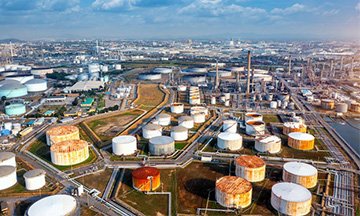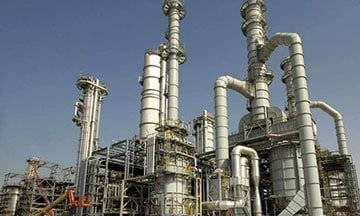Well Control Training Course
| Date | Venue | Duration | Fees | |
|---|---|---|---|---|
| 20 May - 24 May, 2024 | Dubai | 5 Days | $4750 | Register |
| 12 Jun - 14 Jun, 2024 | Dubai | 3 Days | $3950 | Register |
| 22 Jul - 26 Jul, 2024 | Dubai | 5 Days | $4750 | Register |
| 12 Aug - 16 Aug, 2024 | Dubai | 5 Days | $4750 | Register |
| 16 Sep - 20 Sep, 2024 | Dubai | 5 Days | $4750 | Register |
| 23 Sep - 04 Oct, 2024 | Cape Town | 10 Days | $9150 | Register |
| 28 Oct - 01 Nov, 2024 | Dubai | 5 Days | $4750 | Register |
| 25 Nov - 29 Nov, 2024 | Dubai | 5 Days | $4750 | Register |
| 02 Dec - 13 Dec, 2024 | Kuala Lumpur | 10 Days | $9375 | Register |
| 16 Dec - 20 Dec, 2024 | Dubai | 5 Days | $4750 | Register |
Course Overview
The oil industry has got a leading role in supplying the ever increasingly world energy needs and at some point, has kept a fair standing regarding safety performance. Our current life activities rest on a lot of processes and transformations requiring the production and consumption of huge amounts of hydrocarbons. But as in any other industry on earth, it is not infallible, and the oil patch has been hit sometimes by catastrophic incidents as the disaster in Deepwater Horizon.
The losses of human life, damage to the environment and equipment rooted forever, this tragedy is in focus in the minds of oil workers and businessmen alike. As such, further improvements on training of personnel and spotless management of operations involving critical procedures were mandatory introduced. Thereby, the commitment to well control training and the following of the oil industry widely recognized best practices translate into safer and smoother operations in the field. Thereby this specific training is very important for the industry and helps it to get its financial objectives met and brings some opportunities of professional advancement for the employees.
This Zoe training course will help participants enhance their expertise, attain updated technical knowledge, and catch up with recent procedures and industry knowledge sharing. The course topics encompasses Well control principles used in the hydrocarbon industry, upstream operations such as drilling, workover and completions for preventing a kick from becoming a blowout. Our trainers provide the knowledge and technical tools required to maintain safe and effective well control operation.
Course Objectives
The main objectives of this Certificate in Well Control training course are to enable participants in:
- Getting a broad knowledge of Well Control principles and domain
- Practical competence required to apply these fundamentals to tackle most of well control situations faced in live duties
- Understanding the cornerstone of Well Control
- Acquire and develop specific well control knowledge according to the responsibility assigned on duties
- Full grasp of how well integrity is maintained throughout every cycle of the well until completed
- Be aware of Management of Change
- Know and practice well control risk awareness and assessment in tasks assigned
- Be aware of operational ranges and limitations for each equipment being part of well control
- Encourage them to build on their deep engagement by embracing continuous improvement for the sake of career development
- Cultivating a culture not to shut their eyes to lack of certainty in the middle of an abnormal situation (rather shut well in)
- Be aware of value of following learning from incidents and knowledge sharing
- Be cognizant of contingency plans in the well planning operations
Training Methodology
For the oil and gas industry, role-specific training levels are recommended to be embraced and Zoe Talent Solutions can fully address it with custom-built teaching suited for the audience. The method concentrates on individual needs and keep tracks of the participant advancement throughout the training period; relying on the use of direct learning experiences as main factor to attain comprehension of a process and get further knowledge on a topic. We rely on high experience professionals as the source of talent to design, deliver and keep our contents and materials updated.
Productive Training session entails a twofold association, which means partnership between the instructor and the participants. By splitting participants into groups, we foster working together within a promotive learning workplace. The use of Character switch encourages active participation when reaching milestones in training scope. All these approaches belong to Experiential learning.
Zoe Talent Solutions follows the ‘Do-Review-Learn-Apply’ model.
Organisational Benefits
The organisations having professionals undertaking this Certificate in Well Control training course will benefit in the following ways:
- To make participants knowledgeable on prevention measures, detection of well control events, well control parameters in order to react adequately to the challenging situation at the wellsite
- The employees exposed to this training will help the organization to improve its capability to reach its operational efficiency goals and meet safety standards
- With this type of training being delivered to all intended operational personnel, it can be showcased to both clients and employees to fully support the organization commitment to quality and excellence
- The drilling crews will be better prepared to cope with undesirable pressure events in the well to safely control them more effectively by putting into practice the training received
- This training will render people and processes more connected, by developing skills that prop up safe and efficient teams
- Boosting culture of risk awareness with crews and performing risk prevention mitigation plan
- Being the wellsite operations conducted in a high consequence environment, reinforcement of situational awareness at the training helps the goal of improving human factor skills
- Familiarize crews with the Management of Change process (MOC) and how a considerable number of well control issues can be avoided if changes to program steps are assessed by using MOC
Personal Benefits
Participants enrolling in this Certificate in Well Control training will derive the following benefits:
- Enjoy better job security and career boost
- The employee will have more technical tools and soft skills at his disposal to keep adding value to the organization
- Participants will be able to recognize why appropriate well design is key for well control safety
- Upon culmination of this course, the employee will be able to properly perform their well control responsibilities
- Employee will have the means to eagerly engage with all supportive personnel working to maintain well control
Who Should Attend?
- Personnel partaking in a project whose duties could indirectly impact well control
- Employees belonging to the wellsite operations team
- Employees of services companies operating equipment at the wellsite
- Supervisors with direct duties of well control assurance
- Quality coaching personnel with duties of follow up to training and competence for operational crews
- Employees & Engineers at decision making level in wellsite operations
Course Outline
The course covers the main aspects of well control which are needed for participants to develop knowledge and practice skills. The content to be dealt with are:
Module 1: Well Control Overview
- Why it is very important?
- Industry recommended Practices, Standards and Bulletins
- Risk Awareness
- Risk Management and Contingency Plan
- Well control risk profile during well life
- Management of Change
Module 2: Pressure Concepts and Math Calculations
- Pressure fundamentals
- Volume Calculations
- Hydrostatic, Formation Pressure and Overpressure
- Equivalent mud weight
- Equivalent circulating density
- Maximum well pressure limits
Module 3: Gas PVT and Properties
- Boyle law for Gas
- Gas migration and Expansion
- Gas effect on Hydrostatics
- Compressibility effects on gas
- Solubility of gas in mud
Module 4: Well Planning
- Formation Strength
- Leak off and Formation Integrity Tests
- Fracture Pressure
Module 5: Kick Fundamentals
- Definitions
- Causes
- Detection
Module 6: Well Control Principles
- Primary Well Control
- Tripping practices
- Drilling Fluids
- Secondary Well control
- Tertiary Well control
Module 7: High Preparedness Well Activities
- Flow checks
- Well control drills
- Shut in
- Well Monitoring
- Tripping
- Stripping operations
- Reaction to circulation loss
- Shallow gas
Module 8: Well Control Equipment
- BOP
- Ancillary Equipment
- BOP activation unit
- Testing and completion equipment
- Equipment requirement
Module 9: Subduing kicks
- Detection and containment
- Pre operations before well kill
- Gas migration consideration
- Sustaining constant downhole pressure
- Maximum allowable surface pressure
- Mud gas separator
Module 10: Killing Methods
- Aim of killing techniques
- Bullheading
- Volumetric technique
- Dynamic Lubrication
- Constant bottom hole pressure
- Driller method
- Wait and weight method
- Calculation worksheet
Module 11: Well Control Scenarios
- Difficulties
- Particular cases
- Subsea operations
- Deep water
Module 12: Special Cases to Review
- High temperature and pressure well
- H2S & CO2 operations
- Horizontal well
- Underbalance drilling
- Stripping
- Casing operations
- Cement operations
- Flawed kick indications
- New resources and technology
Module 13: Knowledge Sharing
- Macondo
- String thrown up due to bullheading
- Kick during MPD
- Kick incurs into complex well control
- Wrong calculation leads to gas migration
Module 14: Soft Skills
- Situational awareness
- Teamwork
- Communication
- Stress handling











